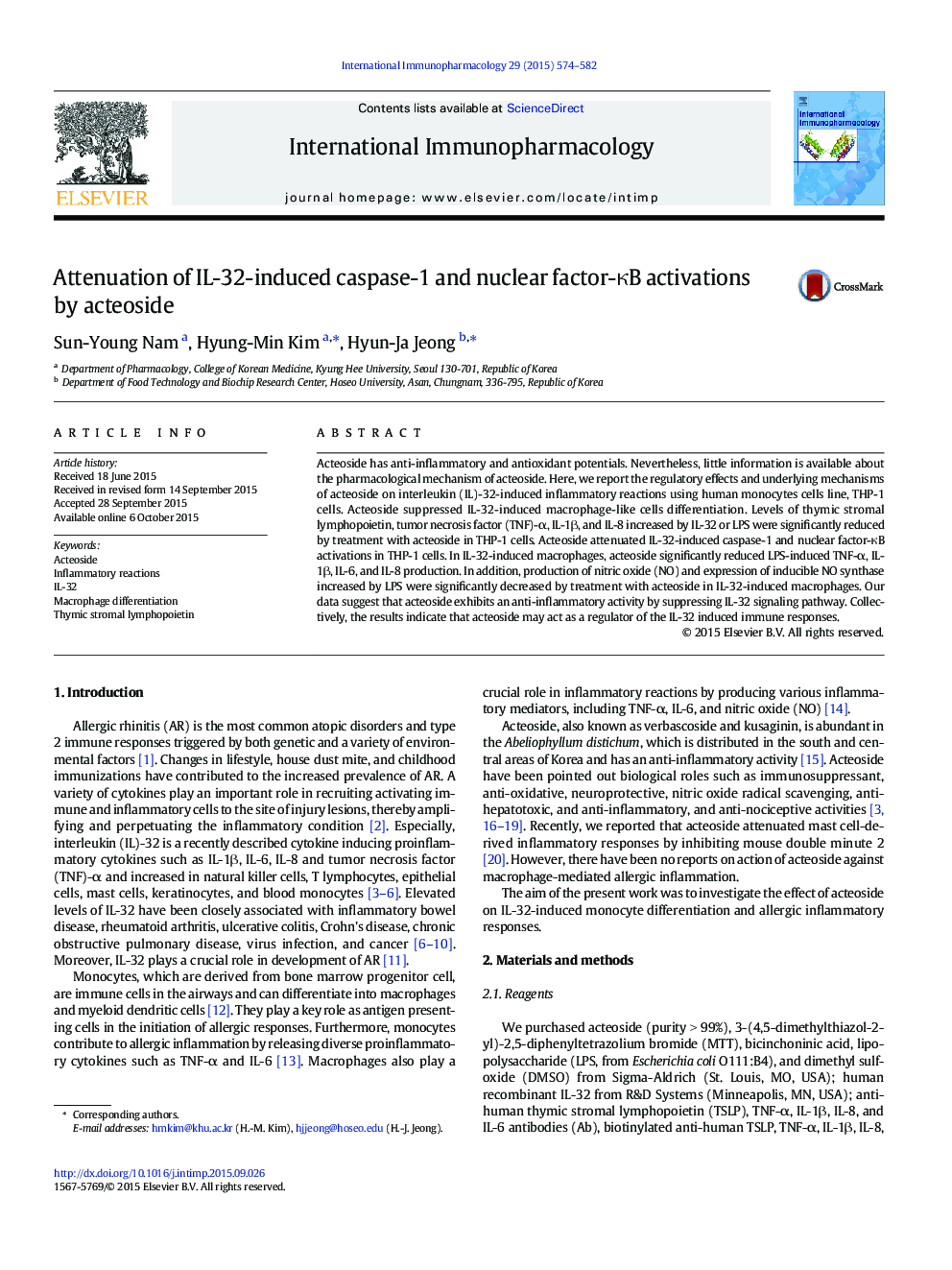| Article ID | Journal | Published Year | Pages | File Type |
|---|---|---|---|---|
| 5832209 | International Immunopharmacology | 2015 | 9 Pages |
â¢Acteoside inhibited IL-32-induced macrophage-like cell differentiation.â¢Acteoside decreased IL-32-induced production of TSLP, IL-1β, TNF-α, and IL-8.â¢Acteoside inhibited IL-32-induced activation of caspase-1and NF-κB.â¢Acteoside inhibited LPS-induced production of proinflammatory cytokines and NO.
Acteoside has anti-inflammatory and antioxidant potentials. Nevertheless, little information is available about the pharmacological mechanism of acteoside. Here, we report the regulatory effects and underlying mechanisms of acteoside on interleukin (IL)-32-induced inflammatory reactions using human monocytes cells line, THP-1 cells. Acteoside suppressed IL-32-induced macrophage-like cells differentiation. Levels of thymic stromal lymphopoietin, tumor necrosis factor (TNF)-α, IL-1β, and IL-8 increased by IL-32 or LPS were significantly reduced by treatment with acteoside in THP-1 cells. Acteoside attenuated IL-32-induced caspase-1 and nuclear factor-κB activations in THP-1 cells. In IL-32-induced macrophages, acteoside significantly reduced LPS-induced TNF-α, IL-1β, IL-6, and IL-8 production. In addition, production of nitric oxide (NO) and expression of inducible NO synthase increased by LPS were significantly decreased by treatment with acteoside in IL-32-induced macrophages. Our data suggest that acteoside exhibits an anti-inflammatory activity by suppressing IL-32 signaling pathway. Collectively, the results indicate that acteoside may act as a regulator of the IL-32 induced immune responses.
